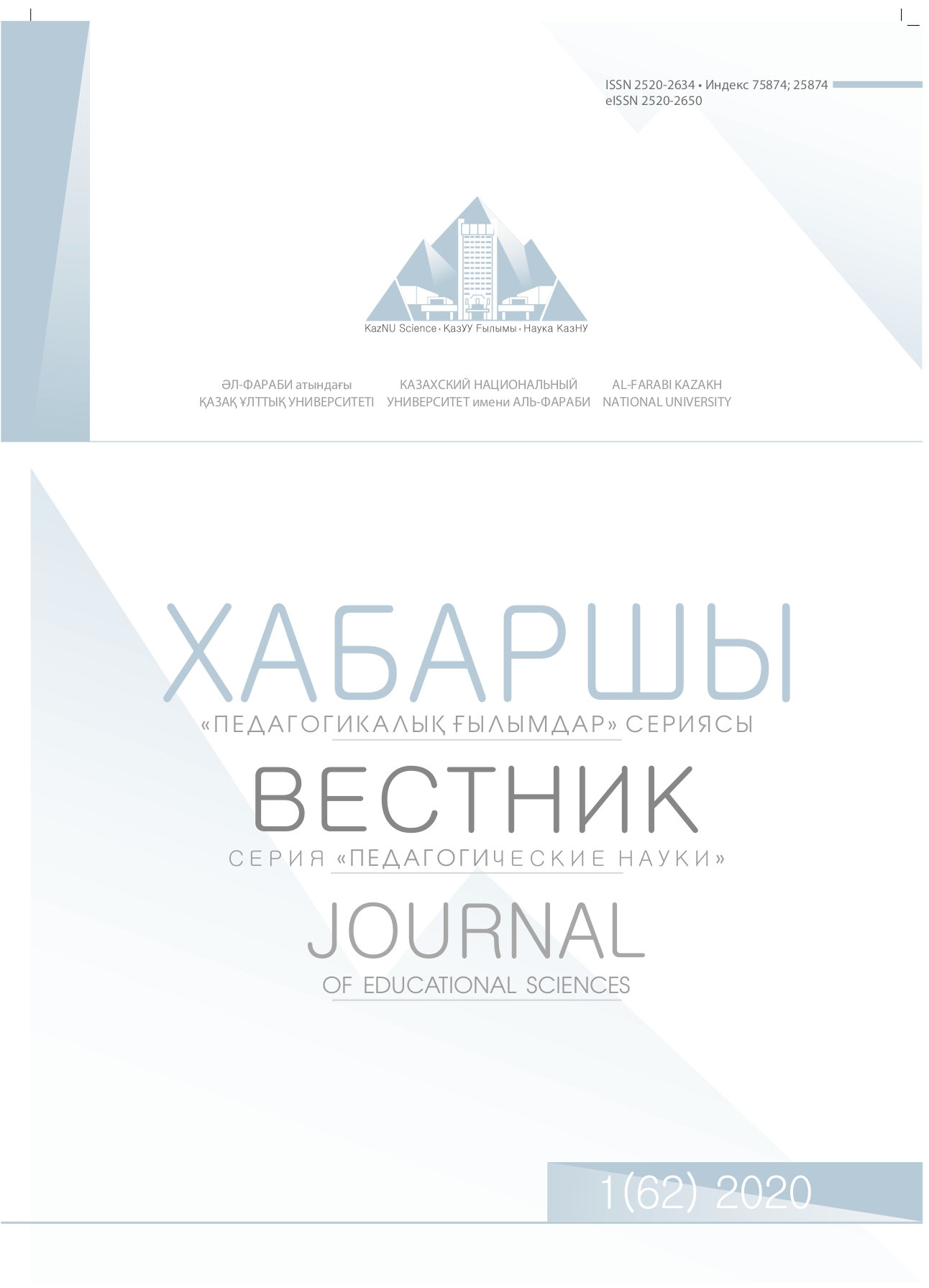Pedagogical Concept оf Al-Farabi
DOI:
https://doi.org/10.26577/JES.2020.v62.i1.01Abstract
The pedagogical system based on spiritual and moral virtuous values in the philosophical, pedagogical and socio-ethical heritage of Abu Nasir al-Farabi is revealed in the article. The ideas of the scientist on the methodology of pedagogy, didactics, education, psychology and methodology are systematized. These ideas are illustrated by the main categories such as “virtuous city”, “intellectual virtue”, “ethnic virtue”, “methodology”,” didactics”,” psychology”,” education”,” method”,” learning”,” reason”,” prudence”,”happiness”. The pedagogical heritage of al-Farabi is considered from the standpoint of the philosophy of modern science. Al-Farabi didactics includes concepts such as” purpose of learning”, “basic concepts of didactics”, “principles of learning”, and “teacher qualities”. The theory of education of al-Farabi includes the following categories: purpose, laws, principles of education, content - methods of education, means, results of education. In the theory of education, great importance is attached to ethical concepts. The author observes al-Farabi’s approach to the concepts of “happiness” and “virtues”. Separately, systematic family education: roles of women and men, the relationship of master and servants, relations between parents and children, relation to the property and labor education. The author systematizes logical connections as chains of categories in the pedagogical theory of al-Farabi: levels/ places/locations of education “state – city-family”, educators - “ruler – head of the family – family members-mentors”, ways of education- “teaching-teaching-education-teaching philosophy – doing science”, etc. In conclusion, the author summarizes the scientific schools of the Department of pedagogy and educational management, conducted research areas on al-Farabi pedagogy. Key words: Renaissance, pedagogy, methodology, concept, worldview, researcher, didactics, teaching, learning, education, mind, happiness, reason, judgment, teacher, calligraphy, music, psychology, virtue, heritage.















